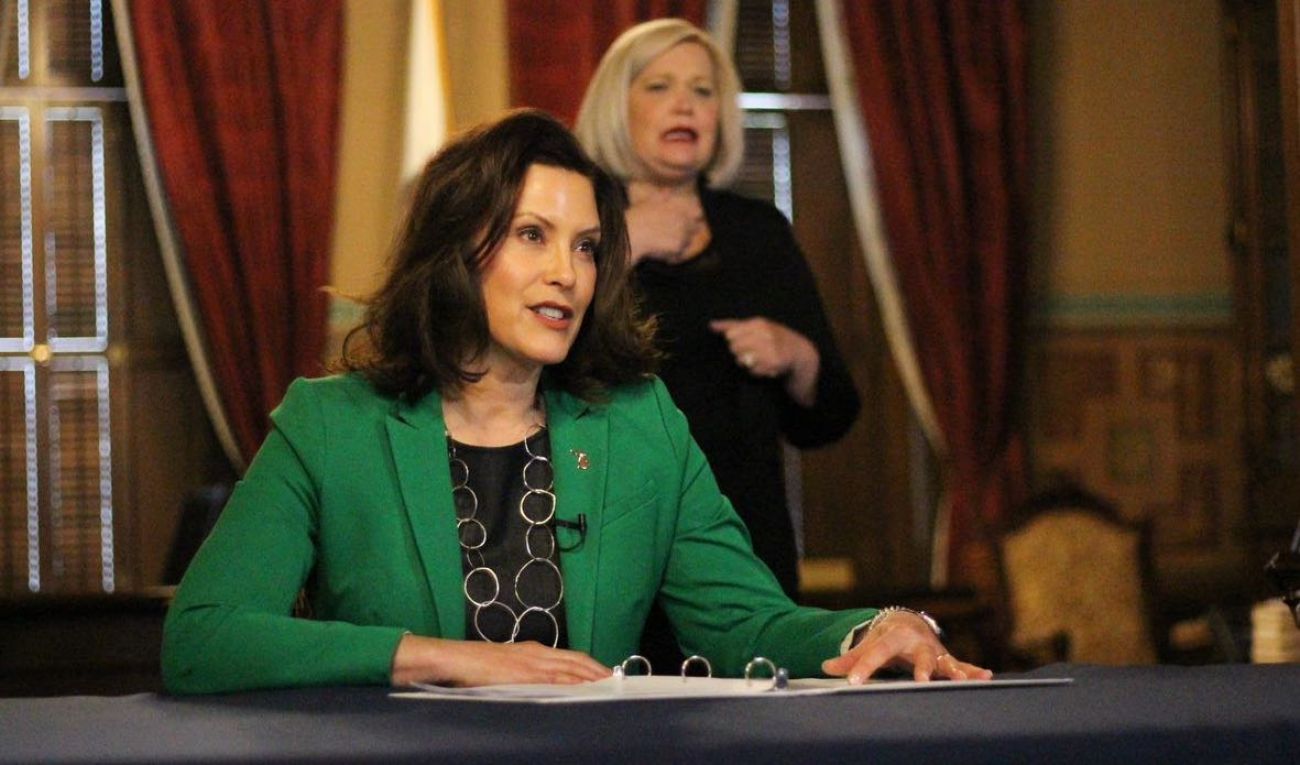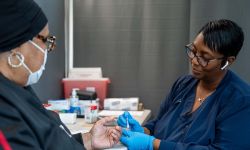Dems, GOP spar over Michigan Legislature’s plans to meet amid pandemic

LANSING — The top Democrat and Republican in the Michigan House are at odds over how and if the Legislature should meet next week to consider a shorter emergency extension than Gov. Gretchen Whitmer is requesting amid the global coronavirus crisis.
Members and staff should not put their own health at risk to vote on a resolution that is "insufficient to address the present public health crisis and legally dubious," House Minority Leader Christine Greig, D-Farmington Hills, wrote in a Saturday letter to Speaker Lee Chatfield, R-Levering.
Greig indicated she has “grave concerns” about plans for Tuesday's session and said that if the House must meet, members should be asked to wear cloth masks or face coverings, as recommended by the U.S. Centers for Disease Control and Prevention.
- The latest: Michigan coronavirus map, locations, updated COVID-19 news
- What Michigan’s coronavirus school closure means for you
- What Michigan’s coronavirus stay-at-home order means for residents
- What jobs are exempt from Michigan coronavirus lockdown? You may be surprised.
In response, Chatfield said he’ll implement new screening procedures for legislators, including temperature checks, and vowed the Legislature “will continue to do its job and stand ready to address this pandemic on behalf of the people we represent."
The dispute comes less than one week after state Rep. Isaac Robinson, D-Detroit, died of an illness his family believes was COVID-19. A second legislator, Rep. Tyrone Carter, D-Detroit, has tested positive for the virus.
Whitmer is asking the state Legislature for a 70-day extension of a declaration giving her emergency authority to respond to COVID-19. The resolution would not lengthen her stay-at-home order that is set to expire April 13 but would ensure Whitmer has continued ability to issue new or revised orders of that kind.
Senate Majority Leader Mike Shirkey, R-Clarklake, has said 70 days is "too long," and both he and Chatfield have indicated the Legislature will meet Tuesday to approve a shorter extension of some kind.
That would be an "unprecedented course of action that is inconsistent with the text of the Emergency Management Act and past precedent in the Michigan Legislature," Greig argued in her letter.
That act allows Whitmer to issue a disaster declaration that lasts up to 28 days, "unless a request by the governor for an extension of the state of disaster for a specific number of days is approved by resolution of both houses of the legislature."
According to Greig, that means the Legislature can only approve or deny the governor's 70-day request, not modify it.
Greig also argued the expanded disaster declaration Whitmer issued last week restarted that 28-day countdown and does not expire until April 29. So if the Legislature extends her authority through April 30, for instance, that would only give her one additional day.
“Your interpretation results in an obvious absurdity – that any governor could just revise and reissue declarations in perpetuity, rendering the clear language of the law and the legislative branch meaningless,” he said.
“The idea that the Legislature cannot determine the length of an extension is also inaccurate, without precedent and contrary to both state law and logic.”
Whitmer issued an original emergency declaration on March 10, the same day officials confirmed the state's first case of the coronavirus that has since killed 540 people as of Saturday afternoon.
Whitmer rescinded and replaced that order Thursday with an expanded emergency and disaster declaration, asking the Legislature to extend it by 70 days from that point.
“To meet the steep, varied, and ongoing demands created by the COVID19 pandemic, my administration must continue to use the full range of tools available to protect the health, safety, and welfare of our state and its residents,” Whitmer told Chatfield and Shirkey last week in a letter.
The Legislature last met on March 17, when lawmakers wrapped up a marathon session by approving a $125 million coronavirus response package.
While the House implemented some staff limitations, Greig said she was "dismayed" GOP leadership did not take additional precautions.
"The House must not repeat these mistakes," Greig said. "The pressing need for such precautions is underscored by the tragic death of our colleague, and my friend, state Representative Isaac Robinson”
Chatifled responded by letter later Saturday, suggesting Greig had already "been made aware of screening procedures" that will be put in place Tuesday. The House has a "comprehensive plan" that mirrors state and federal health guidelines.
“Millions of Michiganders who are unaffected are showing up for work every day to keep our state moving. We’ve seen nurses, doctors, police officers, firefighters, grocery store workers and many more answer the call to serve throughout these tumultuous times,” Chatfield said. “I don’t intend to leave them hanging. They haven’t put the state on hold, and we are not going to put their immediate needs on ice.”
The Senate publicly outlined meeting plans last week.
The Capitol will be open to the public when the House and Senate convene, but anybody who enters will be screened, probably by taking their temperature, Shirkey spokeswoman Amber McCann told Bridge on Thursday.
Senators will come into the chamber one at a time to note their attendance and then leave, leaving only a handful of people in the room at a time, until at least a quorum is reached of 20 people.
They expect to approve the measure by a voice vote, which would only require one person present in the room. “It would be a very unorthodox version of Senate session,” McCann said.
But even then, some lawmakers say meeting in person creates an unnecessary risk.
State Sen. Mallory McMorrow, in a Friday editorial for the Detroit Free Press, argued legislative leaders should create a contingency plan to work remotely. She argued lawmakers should explore a provision of the state constitution that allows them to meet elsewhere during times of danger.
"Whether it’s this pandemic, another polar vortex, natural disaster, or other state emergency, the Legislature desperately needs to put contingency plans in place to allow its work to continue, uninterrupted, remotely and safely — just like so many workers, families, schools and companies across Michigan are quickly mobilizing to do," she wrote.
"Without it, we’re risking the very lives we’ve each taken an oath to represent.
RESOURCES:
- Michigan coronavirus dashboard: cases, deaths and maps
- Michigan families can get food, cash, internet during coronavirus crisis
- How to give blood in Michigan during the coronavirus crisis
- 10 ways you can help Michigan hospital workers right now
- Michigan coronavirus Q&A: Reader questions answered
- How to apply for Michigan unemployment benefits amid coronavirus crisis
- How to get tested for coronavirus in Michigan
See what new members are saying about why they donated to Bridge Michigan:
- “In order for this information to be accurate and unbiased it must be underwritten by its readers, not by special interests.” - Larry S.
- “Not many other media sources report on the topics Bridge does.” - Susan B.
- “Your journalism is outstanding and rare these days.” - Mark S.
If you want to ensure the future of nonpartisan, nonprofit Michigan journalism, please become a member today. You, too, will be asked why you donated and maybe we'll feature your quote next time!




